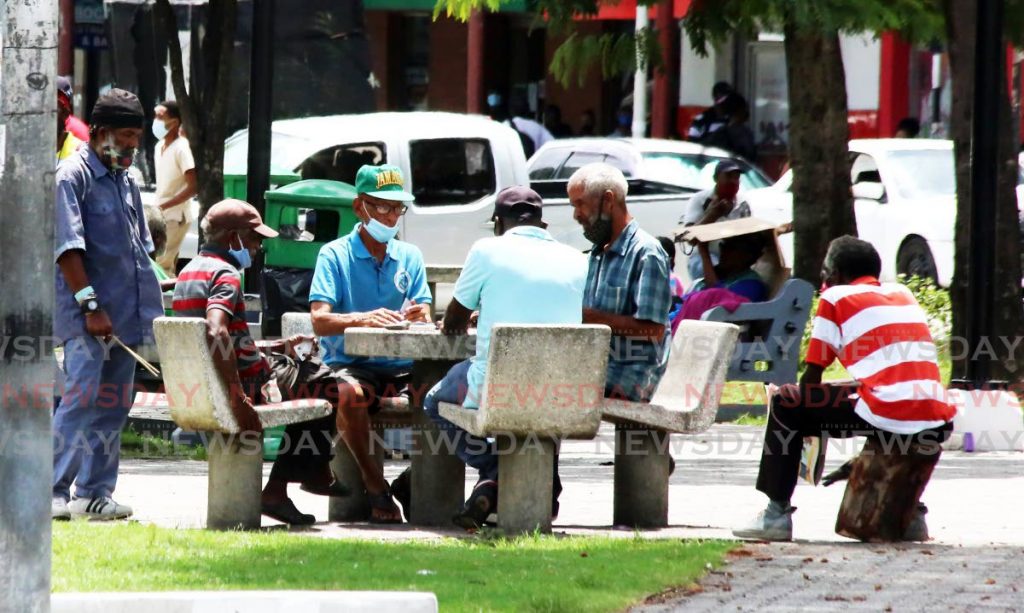Trinidad and Tobago goes past 300 deaths

A record number of 23 people were reported dead from covid19 on Tuesday, bringing the total death toll since the start of the pandemic last year March to over 300, or 317 deaths to be exact.
The Ministry of Health's daily update also recorded 601 more newly-infected people (from last week Tuesday to Sunday), the second highest daily increase after a record 615 infections reported last Wednesday.
May remains the deadliest month, with 148 deaths in the first 18 days of the month, working out at an average of eight people dead per day.
The 148 death toll in May is daily inching towards equalling the number of deaths for the whole year-plus since March last year: the death tally before May was 169 people.
In May, 6,326 people became infected.
The recent update said the country now has 6,318 infected people. So far since last year, Trinidad and Tobago has had 17,150 cases, of whom 10,515 people recovered.
Some 387 covid19 patients are in hospital. Some 129 people are in step-down facilities, 336 in state quarantine facilities and 5,201 in home self-isolation.
So far some 159,982 people have been tested for the virus, including 74,325 tested at private facilities.
The statement said 61,806 people have been vaccinated with their first dose, while 1,179 people have been fully vaccinated with a second dose.
Additional information on the ministry's website said the deceased comprised seven elderly males, five elderly females, one middle-aged male, two middle-aged females, all with comorbidities, plus one elderly male, two elderly females, two middle-aged males and three middle-aged females, all without comorbidities.
Tuesday's shocking death toll came as the country settled into its third day of a curfew and state of emergency aimed at curbing the virus by limiting the movement and congregation of people. The country also awaits a national day of prayer next Sunday called by the Prime Minister.
Dr Rowley had originally set that date, May 23, as the end of a period of initial strictures designed to dampen the virus spread, such as the closure of bars and restaurants. As infections had continued to rise, these restrictions were tightened to prevent street food-selling, restaurant delivery services, and all retailing except essential services such as supermarkets, pharmacies and bakeries.
"This medicine is bitter and if you don't take it this is death for some people," Rowley had warned, saying he was not in any popularity contest but simply trying to save lives.
A further series of strictures then limited the retail hours of these essential services.
Finally, as numbers rose unabated, Rowley last Saturday announced an almost immediate state of emergency and a curfew that prevents people being on the street from 9 pm-5 am nightly.
Exactly two weeks ago on May 4, Rowley and his team of top health advisers had warned that the high rate of spread of infections had threatened to overwhelm the parallel health system, so that if anyone's family-member were to need hospitalisation, there would simply be no space. Since then Principal Medical Officer Dr Maryam Abdool-Richards has slightly expanded the bed capacity at several hospitals, and field hospitals have been erected by US soldiers at the Jean Pierre Complex in Port of Spain and Couva Hospital.
Given the 14-21 day incubation period of the virus and the fact it was 14 days ago that Rowley appealed to citizens to limit their movement, questions now arise as to whether citizens have adequately heeded his warning and changed their behaviour.
Despite good prospects posed by the arrival of the doses of the Sinopharm vaccine from China, the continued high levels of new infections and new deaths cast very serious doubts on any return to normality in the life of TT, as adults ponder their jobs and businesses and youngsters wonder about the dates set for their SEA, CSEC and CAPE exams respectively.
With nurses and doctors testifying of their daily struggle to tend to the sick and with patients testifying as to the touch-and-go ordeal of weeks of having to gasp for a lungful of air, as oxygen tanks run short and are being sold privately for thousands of dollars, the country holds its breath for an end to this plague.

Comments
"Trinidad and Tobago goes past 300 deaths"